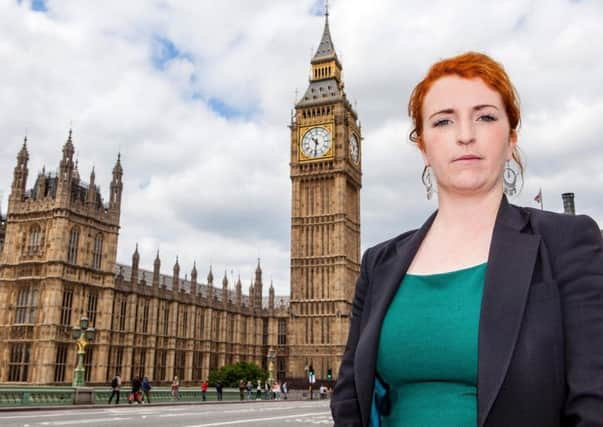'˜Broadband funding not enough to address rural imbalance'


Culture Secretary Karen Bradley has announced that around 600,000 extra homes and businesses in the hardest-to-reach parts of the UK will benefit from the £440m pledge.
The investment, as part of the Broadband Delivery UK programme (BDUK), consists of £150m in savings from “careful contract management” and £292m released through a clawback system that re-invests money when people take up superfast connections under the scheme.
Advertisement
Hide AdAdvertisement
Hide AdBut South Yorkshire MP Louise Haigh said the funds do nothing to address price discrepancies which are hindering take up in rural areas, while other critics claimed the copper wiring used in some areas by BT Openreach to deliver faster speeds is already outdated and that rural communities should be able to influence the way in which better connectivity is delivered.
Sheffield Heeley MP Ms Haigh, who is Labour’s digital economy spokeswoman, said: “Additional investment in our broadband network is welcome but the announcement is not going to get us anywhere near the level of coverage we need.
“There are still significant issues around take-up with BDUK and too many people in rural areas are still paying the same for 1mbps as 100mbps elsewhere. We still have a long way to go.”
Ministers set up the BDUK project to provide superfast broadband to 95 per cent of the UK by December next year.
Advertisement
Hide AdAdvertisement
Hide AdAround 1.5m homes and businesses have signed up for super-fast connections in areas where Government has subsidised the roll-out. In Yorkshire, the take-up rate is 31 per cent.
The £292m figure includes £133m allocated for regions around the UK, with £13.6m to be spent in Yorkshire.
Professor Will Stewart, vice-president of the Institution of Engineering and Technology, said the UK needs a “joined-up approach” for universal superfast broadband which involves converging fibre broadband and local wireless infrastructure instead of relying on old copper systems still in use in some areas.
He said: “Ultimately, the Government should invest in a ‘gold standard’ solution using fibre and wireless technology to give the UK a futureproof broadband infrastructure that will enable the UK to become a global leader in communications networks.”
Advertisement
Hide AdAdvertisement
Hide AdAccording to Dr Charles Trotman, rural business adviser at the Country Land and Business Association, the next two years are crucial in “cementing the end of the digital divide that continues to hold back the rural economy from fulfilling its potential”.
He said: “Providing communities with a voice and stake in how they are connected will be crucial to ensuring the right investments are made in this area.”
Sarah Lee, head of policy at the Countryside Alliance, added: “It’s vitally important that these eye-catching numbers and the Government’s promises are translated into concrete results for people in rural communities who currently feel extremely let down by the poor provision of superfast broadband in their communities.”
A recent Ofcom report showed there are 960,000 premises in rural areas still without access to download speeds above 10mbps.
“Addressing this unacceptable imbalance in coverage should at the forefront of the Government’s digital agenda,” Ms Lee said.